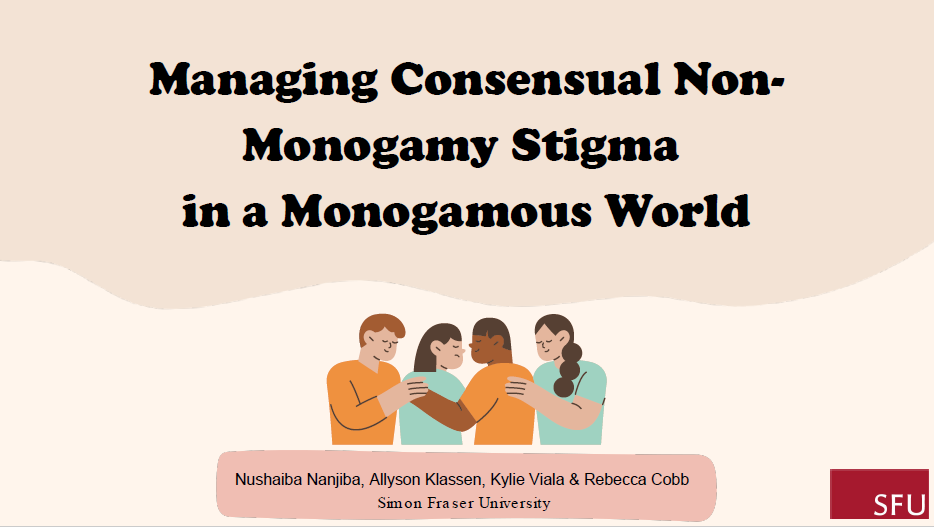Managing Consensual Non-Monogamy Stigma in a Monogamous Society
Main Article Content
Abstract
In Western societies, monogamy is idealized and consensual non-monogamy (CNM), where individuals consent to multiple sexual/romantic involvements, is stigmatized. We explored how 31 individuals in CNM relationships navigated stigma by qualitatively analyzing interviews about their relationship experiences. Monogamy is the norm in Western society and those who engage in consensual non-monogamy (CNM; consenting to multiple sexual/romantic involvements), are stigmatized. We interviewed 31 individuals in CNM relationships to understand their experiences of enacted and anticipated stigma. Participants were mostly White (77%), female (61%), LGBTQIA2S+ (81%), polyamorous (81%), and averaged 41 years of age. Reflexive Thematic Analysis (Braun & Clarke, 2006) suggested that participants used approach or avoidance strategies to manage stigma. Approach strategies involved setting boundaries with people who stigmatized participants (ultimatums), correcting misconceptions, and being openly proud about CNM (CNM pride). Avoidance strategies included disengaging from people who stigmatized participants (disengagement), passing as monogamous, and avoiding CNM discussions. CNM pride and correcting misconceptions were the most used approach strategies, and over half of participants passed as monogamous and avoided CNM discussions. Most participants also used a combination of approach and avoidance strategies by weighing the possibility of stigma to decide whether and to whom to disclose their CNM experiences (selective disclosure). Approach strategies, such as CNM pride, could foster connection within participants' communities, which may buffer the harmful effects of minority stress. Conversely, avoidance strategies, such as passing as monogamous, may increase the editing behaviour of participants and possibly lead to increased minority stress. Participants flexibly used approach and avoidance strategies to effectively navigate the monogamous world. However, they did tend to use approach strategies more frequently, which may be an important way that CNM individuals bolster connection, possibly mitigating the negative effects of minority stress.
Faculty Supervisor: Dr. Rebecca Cobb, Department of Psychology, Simon Fraser University
Article Details

This work is licensed under a Creative Commons Attribution-NonCommercial-NoDerivatives 4.0 International License.

